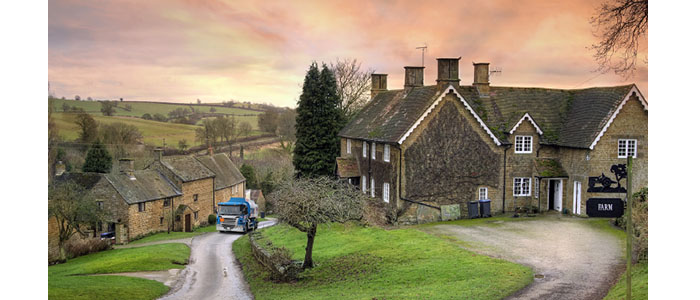Rural Homeowner Heating Was Stuck In The Dark Ages Until Now

Living in the rural areas within Scotland often means you are not close to a mains gas connection, forcing you to heat your home with more expensive off-grid fuel sources and systems.
These vary from domestic heating oil, LPG gas, electric night storage heating, electric wet systems, solid fuels such as wood, coal and peat.
Do You Qualify For Up To A £13,900 Government Incentive?
Oil Prices are volatile and can be subject to drastic changes caused by global trends.
In 2018 we have seen the unit price rise to over 60p per litre.
According to The Telegraph, an average home uses around 2500 litres of oil per year which results in an average annual heating bill of £1500.
Compare this to the average 2018 annual domestic mains gas bill of £646, published by Department for Business, Energy and Industrial Strategy.
What options do you have to reduce your Oil Spend?
The traditional choice would be to install a new high efficiency oil boiler, reducing your oil usage by up to 25% depending on the age and efficiency of your current system.
This is the simplest option and can generally be completed within a few days.
A more efficient and effective way to reduce rising off-grid fuel costs would be to install a renewable energy heating system.
Renewable energy products such as air source heat pumps are widely used to replace oil-fired boilers, LPG boilers, electric wet systems and storage heating.
With a massive efficiency rating of 350%, the reduction in energy bills can be up to 60%.
Air source heat pumps are also backed by the government renewable heating incentive of up to £13,900, which combined with your energy bill savings, makes this an attractive option.
What is a heat pump?
An air source heat pump transfers the warmth from the outside air, to a heating system inside the property.
The heating system works under the principle of vapour compression refrigeration, resembling the way a household fridge works, only in reverse.
Using an air source heat pump as part of a domestic heating solution gives the opportunity to absorb heat from the outside air and transfer it inside into hot water-filled radiators, underfloor heating and a domestic hot water supply.
The good news is this is not means tested, however, there are some criteria set out to qualify for the Government incentive known as the Renewable Heat Incentive (RHI);
- Are you the homeowner?
- Have you claimed before?
- Is the product eligible?
The best thing to do is contact an installer to enquire about the eligibility.
Do You Qualify For A £13,900 Government Incentive?
In terms of fuel savings, figures published by the Energy Saving Trust suggest that, depending on what fuel type the heat pump is replacing, could save you from £300 to £1,090 per year.
In addition to the savings, and if you qualify the “Renewable Heat Incentive” (RHI) would pay you up to £13,900 over the next seven years.


